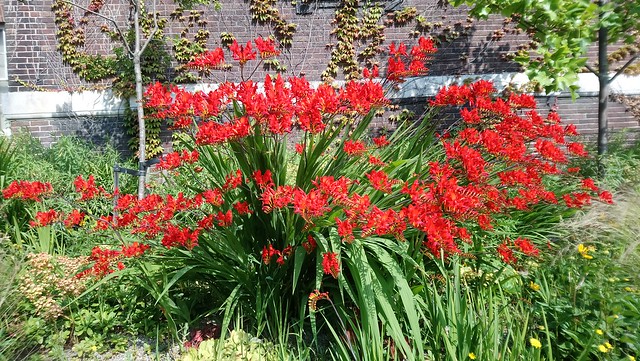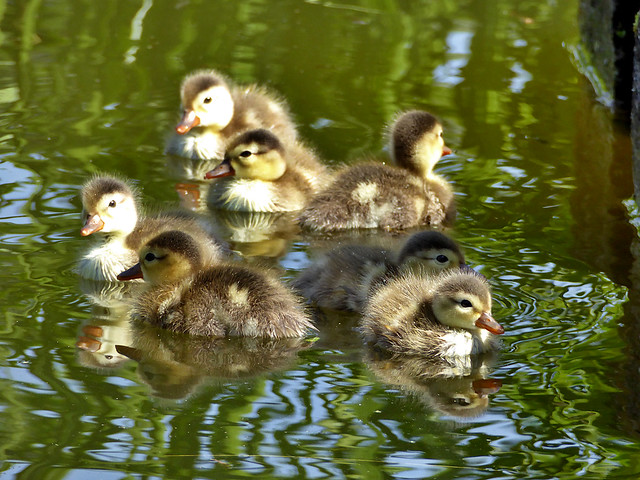Words for ears, hares and related things in Celtic languages.
Words marked with a * are reconstructions.
| Proto-Celtic | *kloustā = ear, hearing |
|---|---|
| Old Irish (Goídelc) | clúas [kluːa̯s] = ear, hearing |
| Middle Irish (Gaoidhealg) | clúas, cluas = (sense of) hearing, ear clúasach, clūasach = pleasing to the ear, having (big) ears or handles, big-eared |
| Irish (Gaeilge) | cluas [klˠuəsˠ] = ear; ear-shaped object; lug, handle; cleat; tab; corner, margin cluasach = having ears, long-eared cluasachán = long-eared person or animal cluasaí = listener, eavesdropper cluasaíocht = eavesdropping, whispering, listening, talking in a furtive manner cluasán = earphone, headphone cluasánach = listless, inattentive person cluasántacht = listlessness, inattention |
| Scottish Gaelic (Gàidhlig) | cluas [kl̪ˠuəs] = ear, lug, handle cluasach [kl̪ˠuəsəx] = pertaining to ears, aural, having (a) handle(s) cluasachan [kl̪ˠuəsəxan] = pillow cluasag [kl̪ˠuəsag] = pillow, bolster cluasagach [kl̪ˠuəsagəx] = pertaining to or abounding in pillows cluasaire [kl̪ˠuəsɪrʲə] = (person with) bigs ears cluasan [kl̪ˠuəsan] = earphone, headset |
| Manx (Gaelg) | cleaysh [kleːʃ] = ear, cleat, handle, lug, top corner of net, corner of sail cleayshagh = aural, (large-)eared, lugged cleayshtynagh = audible, listener |
| Proto-Brythonic | *klʉst = ear |
| Middle Welsh (Kymraec) | clust = ear, hearing, handle clustueinyd, clustfeinydd = attentive or eager listener, eavesdropper clustiog, klustioc = (large-/long-) eared, having a handle, pertaining to the ear clustot, clustog, clustoc = cushion, pillow, bolster |
| Welsh (Cymraeg) | clust [klɨːst / klɪst] = ear, sense of hearing, attention, willingness to listen; handle of a vessel, tag of a boot, top part of a bell; creek or inlet; auricle (of the heart) clustfeinio = to listen closely or attentively, prick up the ears, eavesdrop clustfeiniol = listening attentively or intently clustfeiniwr, clustfeinydd = attentive or eager listener, eavesdropper clustffon, clustffôn = earphone, headphone clustiog = (large-/long-) eared, having a handle, pertaining to the ear clustog = cushion, pillow, bolster clustogi = to cushion, pillow, bolster up, upholster |
Etymology: from Proto-Indo-European *ḱlow-steh₂, from *ḱlew- (to hear) [source]. Words from the same roots include clement, client, listen and loud in English, quaj (to call, name, value, declare) in Albanian, luid (loud, sound, assertion) in Dutch, sláva (fame, glory) in Czech, and hljóður (quiet, silent) in Icelandic [source].
Words for Hearing, Fame and Renown in Celtic languages also come from the same PIE roots.
| Scottish Gaelic (Gàidhlig) | sgiarnag, sgibearnag = hare |
|---|---|
| Proto-Brythonic | *skuβarn = ear *skuβarnọg = hare |
| Middle Welsh (Kymraec) | esgyuarn, ysgyuarn, yscyfarn, yskyuarn = ear ysgyuarnauc, yscyfarnawc, y scyuarnaỽc, ysgyuarnawc, yscyfarnoc = hare |
| Welsh (Cymraeg) | ysgyfar(n) = ear (y)sgyfarnog, sgwarnog = hare ysgyfarnogaidd = harelike, leporine |
| Old Cornish | scouarn = ear scouarnoc = hare |
| Middle Cornish (Cernewec) | scovarn, scouarn, scovern, scovorn, scoforn = ear scovarnog, scowarnak, scowarnog = hare |
| Cornish (Kernewek) | skovarn [‘skɔvarn / ‘skɔvɐrn] = ear, handle skovarnek = hare |
| Old Breton | scobarn = ear |
| Middle Breton (Brezonec) | scouarn = ear scouarnec = having large or long ears, long-eared, having handles |
| Breton (Brezhoneg) | skouarn [skwarn] = ear, gills, handle skouarnad [ˈskwar.nat] = a slap (on the ear) skouarnañ = to garnish with an ear or handle skouarnata [skwarˈnatːa] = to slap, to rub or pull ears skouarneg [ˈskwar.nɛk] = hare skouarnek [ˈskwar.nɛk] = having large or long ears, long-eared, having handles |
Etymology: possibly from Proto-Indo-European *(s)kewh₁- (to observe, perceive) [source]. Words from the same PIE root include cautious, caveat and show in English, schouwen (to inspect, examine) in Dutch, schauen (to look, watch, view) in German, and cauto (prudent, cautious, sly) in Italian [source].
| Irish (Gaeilge) | giorria [ˈɟɪɾˠiə/ˈɟaɾˠiə] = hare |
|---|---|
| Scottish Gaelic (Gàidhlig) | geàrr [gʲaːr̪ˠ] = hare gearrach [gʲar̪ˠəx] = hare giorrasach [gʲir̪ˠəsəx] = hare geàrr-fhiadh = hare gearrag [gʲar̪ˠag] = leveret, young hare |
Etymology: from Old Irish gerr (short) and fíad (deer, wild animal(s)) [source].
| Old Irish (Goídelc) | míl maige = hare |
|---|---|
| Middle Irish (Gaoidhealg) | míl maige = hare |
| Scottish Gaelic (Gàidhlig) | maigheach [mɤjəx] = hare |
| Manx (Gaelg) | mwaagh = hare cha follan as mwaagh = brimful of health (“as healthy as a hare”) |
Etymology: from Old Irish míl (animal) and mag (plain, field) [source].
| Proto-Celtic | *kasnī = hare |
|---|---|
| Old Irish (Goídelc) | Cainnech = personal name |
| Middle Welsh (Kymraec) | ceinach = hare |
| Welsh (Cymraeg) | ceinach [ˈkei̯naχ] = hare (archaic – originally meant “(the) grey/white one”) ceinachgi = harrier, hare-hound |
Etymology: from Proto-Indo-European *ḱeh₂s- (hare). Words from the same PIE root include hare in English, haas (hare) in Dutch, Hase (hare) in German, and hase (female rabbit, hare) in French [source].
| Middle Cornish (Cernewec) | gad = hare |
|---|---|
| Middle Breton (Brezonec) | gat = hare |
| Breton (Brezhoneg) | gad [ɡɑːt] = hare |
Etymology: unknown [source].
Sources: Wiktionary, Etymological Dictionary Of Proto Celtic, In Dúil Bélrai English – Old Irish glossary, eDIL – Electronic Dictionary of the Irish Language, Teanglann.ie, Am Faclair Beag, An etymological dictionary of the Gaelic language, Fockleyreen: Manx – English Dictionary, Online Manx Dictionary, Gaelg Corpus, Geiriadur Prifysgol Cymru, Lexicon cornu-britannicum : a dictionary of the ancient Celtic language of Cornwall, Gerlyver Kernewek, Devri : Le dictionaire diachronique du breton, Dictionaire Favereau, TermOfis












